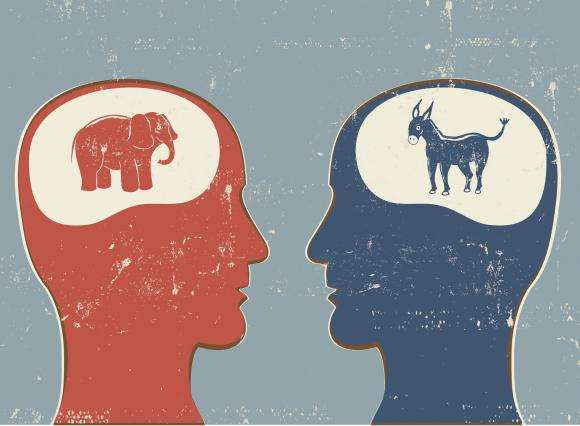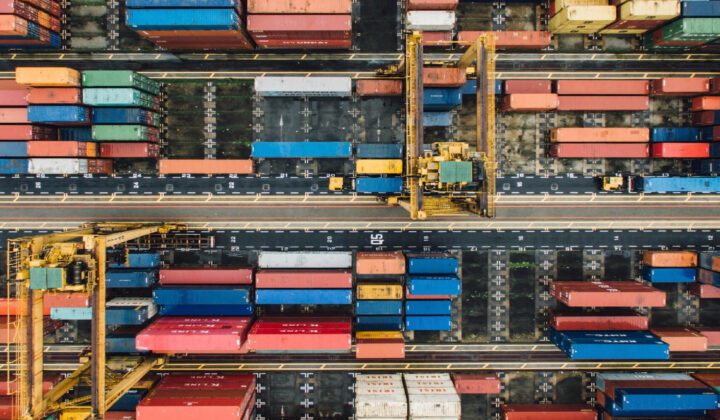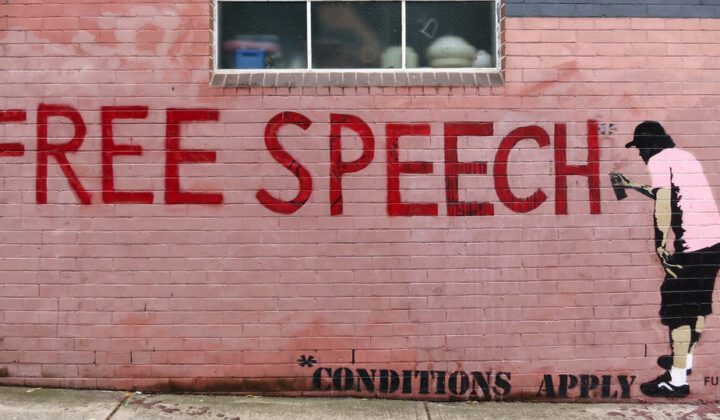Extreme Polarization Strains the Democratic Soul
Given the divisive rhetoric and dysfunctional political system in America today, it certainly feels as if our country is extremely polarized. But is there actually data to back this up? Unfortunately, yes. In a new study, economists at Stanford show that over the last four decades the United States experienced the largest increase in polarization compared to eight other established democracies.
1. Is polarization just when people disagree with one another? No. Polarization is not synonymous with mere disagreement. Our entire American system is predicated upon disagreement in one form or another. In Federalist 51, James Madison stated that, “Ambition must be made to counteract ambition,” to emphasize the importance of the different branches of government serving as checks on one another. And our founders wanted a bicameral legislature, one with both a House and Senate, to make the passage of legislation more difficult.
At the same time, our founders understood the importance of compromise and being able to put aside personal or partisan ambitions for the public good. If our leaders did not possess these virtues, then our Republic simply could not survive.
Polarization, however, undermines these essential civic virtues and forecloses the possibility of cooperation. The complete refusal to engage with the other side is its defining feature. Instead, people retreat into homogeneous bubbles—or tribes—where the louder voices of each side win out over the more moderate ones. And if polarization becomes bad enough, each side views the other side’s victories as completely unacceptable and antithetical to the common good, which encourages recourse to authoritarian behavior.
In the US, political divisions have become ever more personal. The Pew Research Center found that the percentage of Democrats and Republicans with highly negative views of the other party has more than doubled since 1994, a reminder that there was once a time when people could disagree with one another about politics without becoming foes.
2. How has polarization impacted the current impeachment proceedings?
Regardless of what one thinks about the legitimacy of the current impeachment trial, the fact that most votes have been strictly along party lines (e.g. whether or not to subpoena former national security adviser John Bolton) is reflective of the deep divisions in the country and the primacy of party loyalty in decision-making. Proceedings got so heated, that Chief Justice John Roberts had to admonish the participants about their incivility in the process.

Constitutional Crisis in Poland
In Poland this week, a years-long conflict between the judiciary branch and the ruling Law and Justice Party (PiS) has come to a head. The PiS-controlled government has chosen to ignore an important ruling by Poland’s Supreme Court, which had declared that hundreds of judges were illegitimately appointed.
Some important background: Since PiS came to power in 2015, it has attacked the independence of Poland’s judiciary as part of its plan to consolidate power. These attacks have included a law that effectively gave the Justice Minister control over judges’ retirement, a disciplinary chamber with the power to suspend judges, and hijacking the independent body responsible for the appointment of new judges. Furthermore, these legal attacks have been accompanied by a dedicated PR campaign to discredit particular Polish judges.
Over the past year, Poland’s Supreme Court has resisted government interference. But the government has not relented. In addition to ignoring judicial rulings, it has also passed a law that will help the PiS remove unfavorable judges.
1. Why is an independent judiciary important to Poland?
Without an independent judiciary, the courts would become another organ of the PiS, which would effectively mean that Poland would become a one-party, authoritarian state. Indeed, if PiS gains control over the courts, the party would use them to “extend their stay in power indefinitely.” Further, without an independent judiciary, “[p]liant judges could be of assistance to corrupt government officials . . . who want to escape prison sentences.” And if the PiS succeeds in its attempt to take over the courts, the rights and liberties of the individual would be subordinated to the wishes of those in power. For example, the guilt or innocence of a person on trial would not be determined by the facts and a search for truth, but by political considerations. Poland’s human-rights ombudsman, Adam Bodnar, understands this danger all too well. In an interview with the Economist, Bodnar references the expression lex telefonica, which describes how during the communist Polish People’s Republic, “verdicts were routinely dictated by a phone call from an apparatchik at party headquarters. Today’s government has more subtle techniques, but the goal is the same.” Mr Bodnar tells the Economist: ‘’If a judge has a case on his desk with some political importance, he should be afraid.”
2. Why is Poland’s independent judiciary important to Europe?
Poland is a member of the European Union, an institution that relies on the rule of law and a “network of judges” to enforce its rulings. If some member states follow Poland’s lead in ignoring EU judges’ rulings, that could threaten the very integrity of the European Union as a functioning entity.
And importantly, the democratization of many countries in former Communist Eastern Europe was one of the great historic expansions of liberty. However, the rise of authoritarian governments in Poland and Hungary is threatening to reverse that historic progress. It is also offering a blueprint to strongmen in other fragile democracies on how to dismantle the important institutions of liberal democracy.

The Promise of a Sudanese Democracy
There is cause for cautious optimism in Sudan, as the country emerges from decades of authoritarianism and bloodshed. Last April, massive, largely peaceful protests (in the face of state violence) led to a coup that toppled Omar al-Bashir’s brutal 30-year dictatorship. Initially, the military assumed power, but protests continued until an agreement was reached establishing a measure of civilian control of the government, a precursor to democratic rule.
As evidenced by a recent coup attempt by intelligence officials, the road to peace, prosperity, and democracy is long in Sudan. Indeed, for decades, the dictatorial government of Sudan has had the status of an international pariah. And over the course of al-Bashir’s reign, the Sudanese government committed a genocide in the non-Arab Darfur region and created millions of refugees. However, buoyed both by the pro-democracy movement and the leadership of Sudan’s new Prime Minister Abdalla Hamdok, this war torn country is charting a new course.
1. Is Sudan’s new leader the real deal?
Emerging democracies are fragile enterprises. To be successful, they require excellent leaders that help to create and model a culture of accountability in all parts of society, both civilian and governmental. Fortunately, there is reason to believe that Prime Minister Hamdok is one such leader.
Having served as a respected economist at the UN for many years, he may possess the skills necessary to make important reforms to the Sudanese economy and engage diplomatically with foreign powers that could provide aid and assistance.
Perhaps more importantly, Hamdok has shown a willingness to broker peace with the rebel groups whose territories and populations have been devastated by years of mass killing. He visited the rebel-held area of Kauda that has been beset by conflict for many years. And Foreign Policy even describes Prime Minister Hamdok as displaying a “touch of Nelson Mandela’s political brilliance to unite the country around change amid a tortured past.”
2. Why does the situation in Sudan matter to the United States?
A democratic Sudan is better for everyone, including the US. Under former dictator al-Bashir, Sudan became a safe haven for terrorist groups who posed a threat to countries all around the world. Osama bin Laden and other major Al-Qaeda leaders were based in Sudan from 1991 to 1996. In 1993 the US Department of State labeled Sudan an SST (state sponsor of terrorism). Then, in 1998, Sudan was implicated in the US embassy bombings in Kenya and Tanzania, killing over 200 people. Thus, Sudan has posed a national security concern to the US for decades, and the development of a more democratic and transparent government would decrease this risk.
Furthermore, democracy is contagious. If Sudan can emerge from its brutal history and transform into a robust democracy, that would send a signal to pro-democracy movements throughout the world that change and reform are possible. And the United States is safer in a more democratic world.

What is the Positive Role of AI in a Democracy?
The University of Pittsburgh’s Institute for Cyber Law, Policy, and Security recently announced that it will set up a taskforce to examine the use of algorithms that automate decision-making in human services and criminal justice settings. This initiative was spurred on by concerns that algorithms used by local government may lead to biased outcomes. For example, a 2014 study in Science found that the algorithm used to manage care for about 200 million people in the US was less likely to refer black people than white people who were equally sick to specialized programs. As government grows increasingly reliant on complex algorithms to make decisions on critical areas such as healthcare, criminal justice, and immigration, the Pitt task force’s focus on bringing transparency and oversight to the codes that shape our lives is necessary now more than ever.
1. The promise and peril of algorithmic governance
Our world would cease to function without algorithms. They are embedded in all modern technologies, sifting through mass data and information. Whether it is running your personal computer or coordinating Amazon’s world-spanning delivery system, algorithms ensure that previously cumbersome quantities of data can be navigated simply and elegantly.
Algorithms have the potential to make governments more efficient and beneficial to the people they serve. Gerrymandering, a practice that has allowed political parties to create electorally uncompetitive districts for themselves, could be eliminated through the use of algorithms to draw new politically balanced and legally compliant districts. And by automating and making government faster and simpler, algorithms can reduce the justifiable resentment that comes from encountering bureaucracy.
However, as we have already seen, ceding increasing amounts of decision-making to algorithms carries the risk of perpetuating bias and exacerbating a lack of transparency in decision-making. As an expert respondent to a Pew report on algorithms noted: “If you start at a place of inequality and you use algorithms to decide what is a likely outcome for a person/system, you inevitably reinforce inequalities.” In a world run by algorithms, the young and technologically savvy would have a built-in advantage over the non-savvy. There is also a deeper question: how democratic can a government be when increasing amounts of decision-making are transferred to machines? Still, in light of the University of Pittsburgh taskforce, there is reason to hope that society can harness the power of these new tools while also addressing potential concerns.





